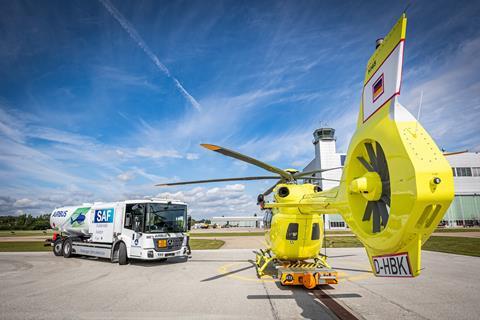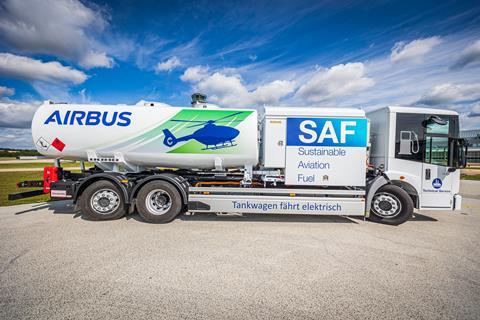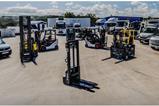In a move toward reducing emissions, Airbus Helicopters has begun using an electric truck to refuel its aircraft at its German facility, marking a shift away from traditional diesel-powered vehicles.

The company started testing the electric refueling truck several weeks ago at its Donauwörth site in Bavaria. Initial results suggest the vehicle can operate for up to a week on a single charge under normal conditions, according to company officials.
“This is part of our broader commitment to reduce carbon emissions to net zZero by 2050,” an Airbus spokesperson said. The company has been increasing its use of sustainable aviation fuel (SAF) since last year and plans to certify all its helicopters to operate on 100% SAF by 2030.
The electric refueling truck, a modified Mercedes-Benz eEconic, carries 16,500 litres of aviation fuel. It was developed through a partnership between Mercedes-Benz Special Trucks and ROHR Spezialfahrzeuge, a German specialty vehicle manufacturer.
Ground crew at the facility report several advantages of the electric vehicle over traditional refueling trucks. “The absence of exhaust fumes, reduced noise, and lower heat emissions make the working environment much more pleasant,” said one worker.
The vehicle’s safety features have been adapted for the unique challenges of airport operations. A low panoramic window gives drivers better visibility of ground personnel, while a steered rear axle allows for tight maneuvering around helicopters and other aircraft.
However, the transition hasn’t been without challenges. The company had to install new charging infrastructure and develop specialised training programmes for ground personnel. The truck’s battery not only powers the vehicle but also operates the fuel pump, requiring careful energy management.
Industry experts see this as part of a broader trend. “We’re seeing more airports and aerospace companies looking at electric ground support equipment,” said Sarah Thompson, an aviation analyst at AeroCorp Consulting. “The challenge is balancing operational needs with charging times and battery life.”

Other aerospace companies are watching Airbus’s experiment closely. If successful, it could pave the way for more widespread adoption of electric vehicles in airport operations, potentially reducing the industry’s carbon footprint.
Meanwhile, the company continues its gradual transition to an all-electric commercial vehicle fleet at the site. “Every step counts,” the Airbus spokesperson said. “From the fuel we use in our helicopters to the vehicles that support our operations, we’re looking at every possibility to reduce our environmental impact.”


















